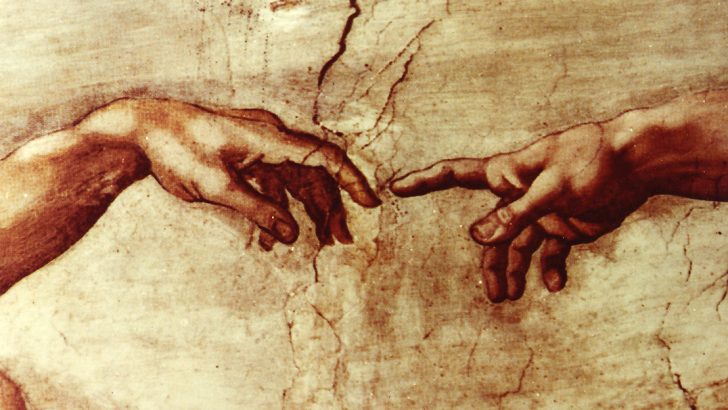Catechesis on creation is of major importance. It concerns the very foundations of human and Christian life: for it makes explicit the response of the Christian faith to the basic question that men of all times have asked themselves.
Human intelligence can find a response to the question of origins which can be known with certainty through his works, by the light of human reason, even if this knowledge is often obscured and disfigured by error. This is why faith comes to confirm and enlighten reason in the correct understanding of this truth.
Work of the Holy Trinity
The New Testament reveals that God created everything by the eternal Word, his beloved Son. He is before all things, and in him all things hold together.” The Church’s faith confesses the creative action of the Holy Spirit, the “giver of life”, “the Creator Spirit”, the “source of every good”.
The Old Testament suggests, and the New Covenant reveals the creative action of the Son and the Spirit, inseparably one with that of the Father. Creation is the common work of the Holy Trinity. Scripture and Tradition never cease to teach and celebrate this fundamental truth: “The world was made for the glory of God.”
The glory of God consists in the realisation of this manifestation and communication of his goodness, for which the world was created. The ultimate purpose of creation is that God “who is the creator of all things may at last become “all in all”, thus simultaneously assuring his own glory and our beatitude.”
The mystery of Creation
God creates by wisdom and love. Because God creates through wisdom, his creation is ordered. Our human understanding, which shares in the light of the divine intellect, can understand what God tells us by means of his creation.
We call “divine providence” the dispositions by which God guides his creation toward this perfection. God is the sovereign master of his plan. But to carry it out he also makes use of his creatures’ co-operation. This use is not a sign of weakness, but rather a token of almighty God’s greatness and goodness.
To human beings God even gives the power of freely sharing in his providence by entrusting them with the responsibility of “subduing” the Earth and having dominion over it. God thus enables men to be intelligent and free causes in order to complete the work of creation, to perfect its harmony for their own good and that of their neighbours.
The scandal of evil
If God the Father almighty, the Creator of the ordered and good world, cares for all his creatures, why does evil exist? There is not a single aspect of the Christian message that is not in part an answer to the question of evil.
But why did God not create a world so perfect that no evil could exist in it? With infinite power God could always create something better. But with infinite wisdom and goodness God freely willed to create a world “in a state of journeying” towards its ultimate perfection. God is in no way the cause of moral evil. He permits it because he respects the freedom of his creatures.
From the greatest moral evil ever committed – the rejection and murder of God’s only Son, caused by the sins of all men – God brought the greatest of goods: the glorification of Christ and our redemption. But for all that, evil never becomes a good. God has guided his creation to that definitive sabbath rest for which he created Heaven and Earth.


 Renata Milán Morales
Renata Milán Morales The Creation of Adam by Michelangelo which forms part of the Sistine Chapel’s ceiling.
The Creation of Adam by Michelangelo which forms part of the Sistine Chapel’s ceiling. 